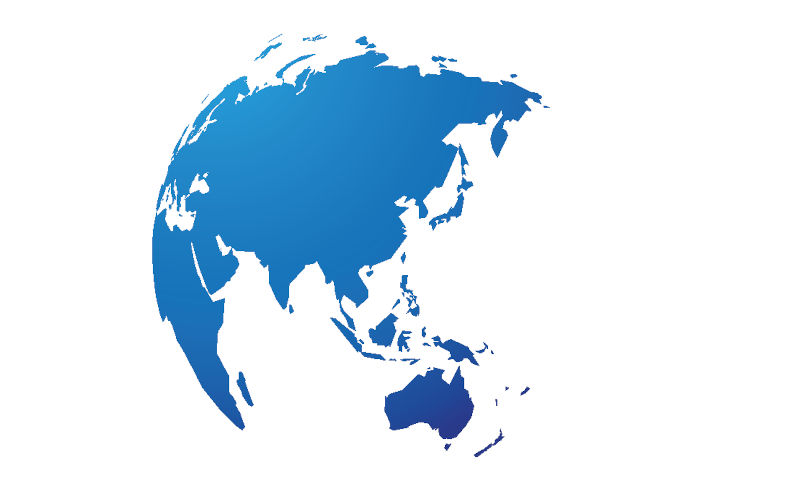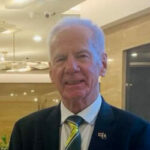In Asian Media this week: Japan crucial to deterring invasion. Plus: China says war would be defensive; Rahul Gandhi connects Modi and Adani; Next to Putin, Xi stands tall; Indonesia woos Tesla for EV plan; Asians reject hectoring Western politicians.
The thinking about a Chinese invasion at high levels in Taiwan’s military is more subtle and complicated than American and Australian war-is-imminent scenarios.
The Japan Times has provided an insight into Taiwanese thinking through an interview with a former leader who helped draft Taiwan’s main military strategy, called the Overall Defense Concept.
Retired Admiral Lee His-min was chief of the general staff between 2017 and 2019 and is now a senior fellow with a think-tank called the Project 2049 Institute.
Lee said Taiwan had to develop its non-conventional, asymmetric warfare capability as it could not counter a Chinese invasion using conventional forces.
“We really don’t stand a chance in a symmetric conflict with China,” he said.
Some of the capabilities Taiwan needed to develop were large inventories of precision-guided munitions, drones, fast-attack craft, small missile-assault boats, sea mines and fast mine-laying ships.
If China decided to invade, Japan’s stance would be crucial. If Japan were to stand side-by-side with the US, it would greatly improve Taiwan’s chances of fighting off Chinese attacks.
Further, Japan’s actions could help prevent an attack by keeping Chinese forces in check.
“China will now have to factor in Japan’s more assertive defence posture in its invasion plans, probably forcing them to reconsider,” Lee said.
For the time being, he said, China was weighing up the risks and benefits of military action, as it would face an international diplomatic and economic backlash, as Moscow had after the invasion of Ukraine.
Lee said China will launch a full-scale invasion only as a last resort.
Instead, it could increase its coercive strategies against Taiwan, seize outlying islands, mount a blockade and launch long-distance strikes.
Military strategy not aggressive, says PLA
China’s military doctrine does not aim to achieve hegemony and is based on defence not aggression, says the People’s Liberation Army’s official newspaper.
An opinion article in the PLA Daily says strategy is focused on defence and ensuring any conflict is legitimate and could win the support of the Chinese people.
Hong Kong’s South China Morning Post carried a news report based on the article. The article discussed the concept of a ‘people’s war’ – a doctrine developed by Mao Zedong. Since the 1980s, the PLA had moved away from the idea of guerilla warfare but retained the doctrine that it called active defence, SCMP said.
President Xi Jinping had called on the Communist Party last October to develop the people’s war doctrine and build a “strong system of strategic deterrence”.
“A people’s war is a total war,” the PLA article says. “Its strategy and tactics require the overall mobilisation of political, economic, cultural, diplomatic, military and other power resources, the integrated use of multiple forms of struggle and combat methods.
“Powerful enemies can be defeated by synergising these capabilities and compensating for deficiencies and disadvantages in specific areas.”
That might sound like the people’s war is concerned with the defence of Mainland China – but there is more to it. SCMP quoted Song Zhongping, a former PLA instructor, as saying a war to unite Taiwan with the mainland would be a defensive war because it involved China’s own territory.
“China’s military is based on defence,” Song said. “China is also focusing on an active defensive strategy when resolving the Taiwan issue.
“We fight to safeguard our own sovereignty, security and development interests. That’s the concept of active defence.”
BJP fears attacks on Adani deals, says Gandhi
A court this week granted bail to former Indian Congress party leader Rahul Gandhi, who was sentenced to two years in prison after having been found guilty last month in a criminal defamation case.
Gandhi was also disqualified from being a member of the lower house of parliament, the Lok Sabha.
India’s The Statesman newspaper reported the court agreed to hear an appeal from Gandhi and set April 13 as the date for a hearing. If the conviction is not overturned, he would be banned from contesting elections for the next eight years.
Gandhi had said in a 2019 election speech that all thieves have the Modi surname, linking Prime Minister Narendra Modi to named fugitives. On March 23, a court found him guilty of defaming the entire Modi community.
The next day, he was disqualified from parliament. The Hindu said the was effective from the date of his conviction.
The Hindu also reported Gandhi as saying the ban was linked to his criticisms of a close relationship between the PM and industrialist Gautam Adani.
The paper said Gandhi had alluded to a direct connection between the ruling party and alleged fraudulent transactions in Adani shell companies.
“I have been disqualified because the Prime Minister is scared of my next speech on Adani,” Gandhi said. “I have seen it in his eyes.”
But Ravi Shankar Prasad, a senior leader of the ruling Bharatiya Janata Party, denied there was a link between Gandhi’s conviction and the political row over Adani.
He said in north India, people of the Modi community were in the Backward and Extremely Backward Class. “He has insulted people of the backward community,” Prasad said. “He has the right to criticise but not to abuse anyone.”
Xi’s the boss – and Mao would be pleased
Xi Jinping in his recent summit with Vladimir Putin was widely, and accurately, seen as showing the Russian leader who was in charge. But there was a historically sharp edge to the meeting.
Nina L. Khrushcheva writes that China and the former Soviet Union were hardly close friends during the Cold War. “Petulant competitiveness defined the relationship,” she says. “A similar dynamic was reflected in Chinese President Xi Jinping’s recent visit to Moscow, but with one crucial difference.”
The difference? A reversal of roles.
Khrushcheva, great grand-daughter of Nikita Khrushchev, says Josef Stalin reportedly called Mao Zedong a “caveman Marxist” and a “talentless partisan”. Khrushchev, who followed Stalin as Soviet leader, also had an icy relationship with Mao, once calling him “bat crazy”.
In an article distributed by the expert writers’ group Project Syndicate and published by The Japan Times, she says China and Russia are linked by a shared ideology, centred on opposition to Western influence over global affairs, but but China is calling the shots.
“Even if Xi did not have the upper hand before …Putin launched his war of choice in Ukraine, he certainly has it now,” she says.
“So, when Xi arrived in Moscow last month, he was standing tall, both literally – towering over Putin by five inches – and figuratively…[W]earing his habitual enigmatic smile, he carried himself with an air of superiority, whereas Putin’s expressions appeared strained.
“As desperate as Putin may be to project an image of strength, he knows that he cannot risk alienating China and he treated Xi as Mao (the ‘Great Helmsman’) wished to be treated…
“Xi has furthered empowered China, which is now better-positioned than ever to influence the international order. Mao would be pleased.”
Indonesia’s EV plan faces hurdles
Indonesia, with the world’s largest reserves of nickel, has plans to become a big producer of electric vehicles.
According to The Jakarta Post, President Joko “Jokowi” Widodo has tried to persuade Tesla chief Elon Musk to invest in Indonesian EV manufacturing.
But there is a big hurdle, the paper said. To follow through on the plan, Indonesia must avoid past environmental mistakes, when unregulated mining turned parts of the country’s tin-producing islands into a lunar landscape.
“In just three years, Jakarta has signed deals worth about $15 billion for battery and EV production,” the paper said.
“But questions over environmental and legal safeguards could make investors wary as they seek to safeguard their reputations.”
Indonesia also has reserves of cobalt and copper which, like nickel, are essential for EV batteries.
But making battery-grade nickel produced a high level of greenhouse emissions. “Indonesia has to shift from coal power plants to renewable energy to lure the likes of Tesla and achieve its ambitious EV goals,” the paper said.
In a separate article, the Post reported Indonesia welcomed a change in ASEAN rules that now classified coal-phase out financing as sustainable investment.
This paved the way for energy-transition efforts that would otherwise have been hampered by financial constraints.
TikTok chief young Asia’s new hero
What, senior folk might ask, is a zaddy?
The word appears in Asian media reporting of the belligerent U.S. Congressional grilling last month of Chew Shou Zi, CEO of the social media company TikTok. Its use, it turns out, is a sign that younger Asians did not react kindly to the American political aggression.
Zaddy, Singapore’s The Straits Times explains, is Internet slang for an attractive man who is charming, self-confident and stylish.
A TikTok video, the paper reported, featured photos of Chew with the phrase “Zaddy TikTok” overlaid on the display.
Chew was questioned aggressively for five hours over his, and TikTok’s, supposed obligations to the Chinese Communist Party. The Straits Times said social media users on many platforms expressed their adoration for Chew, who is Singaporean, and whose wife, Vivian Kao, is Taiwanese-American.
The South China Morning Post said the Congressional hearing played out like a joust between “clumsy, hectoring older Western officials and a fresh Asian voice”.
In a commentary piece in The Straits Times, Leong Chan-Hoong, the Singapore representative of the World Association for Public Opinion Research, said Chew’s interrogation had been likened to Cold War-era McCarthyism.
“The crux of the issue is whether TikTok is obligated to hand over US citizens’ personal data to the Chinese government,” Leong said. “And so the hearing was pursued doggedly.
“There could not be a more blatant display of anti-Chinese sentiment.”
David Armstrong is an Australian journalist and editor with decades of experience, including as editor-in-chief of The Australian, editor of The Bulletin and The Canberra Times and deputy editor the Daily Telegraph in Australia. He is also former editor and editor-in-chief of the South China Morning Post, former president of the Bangkok Post company, former chair of the Phnom Penh Post company and is current chair of ucanews.com.

